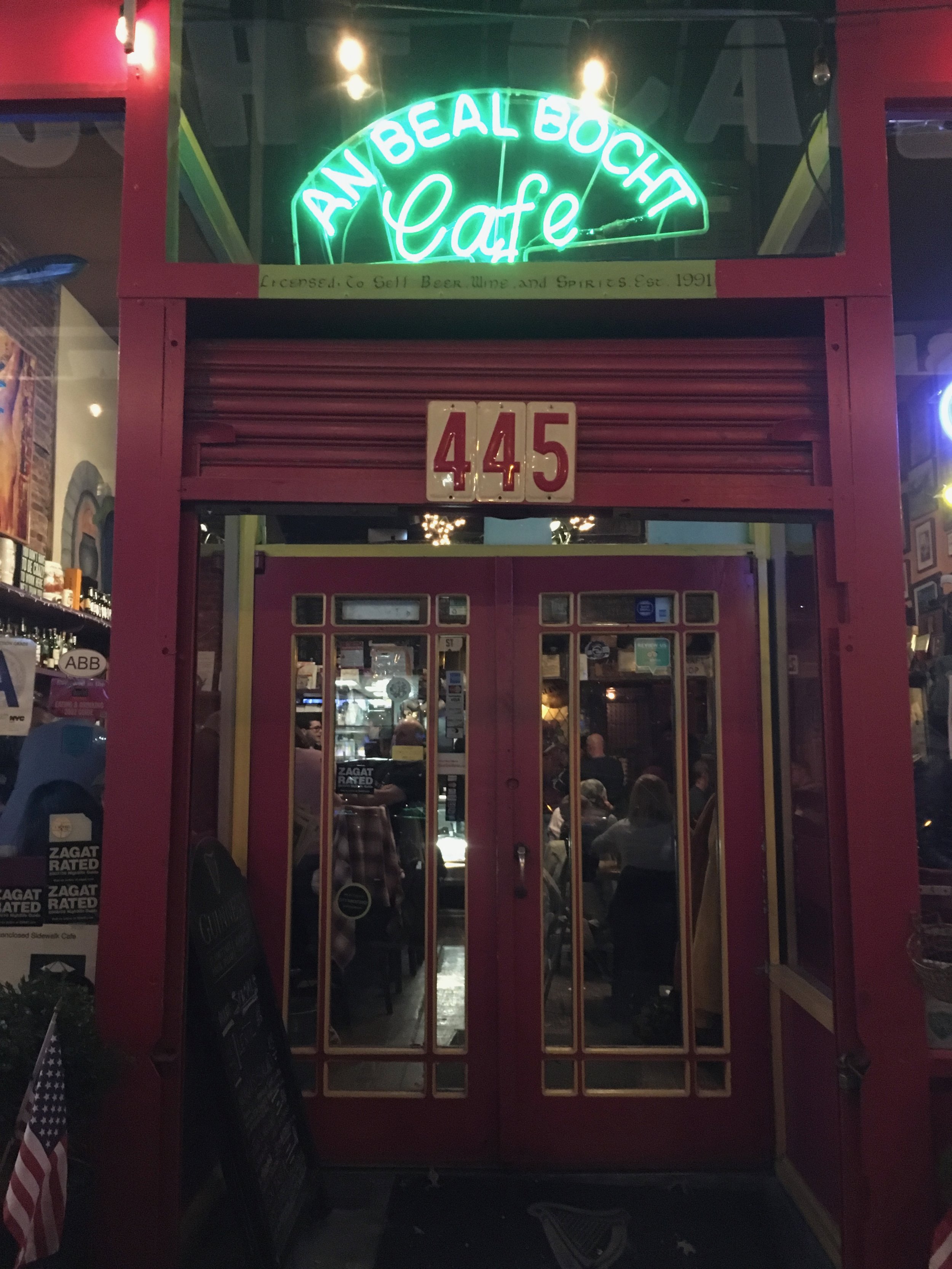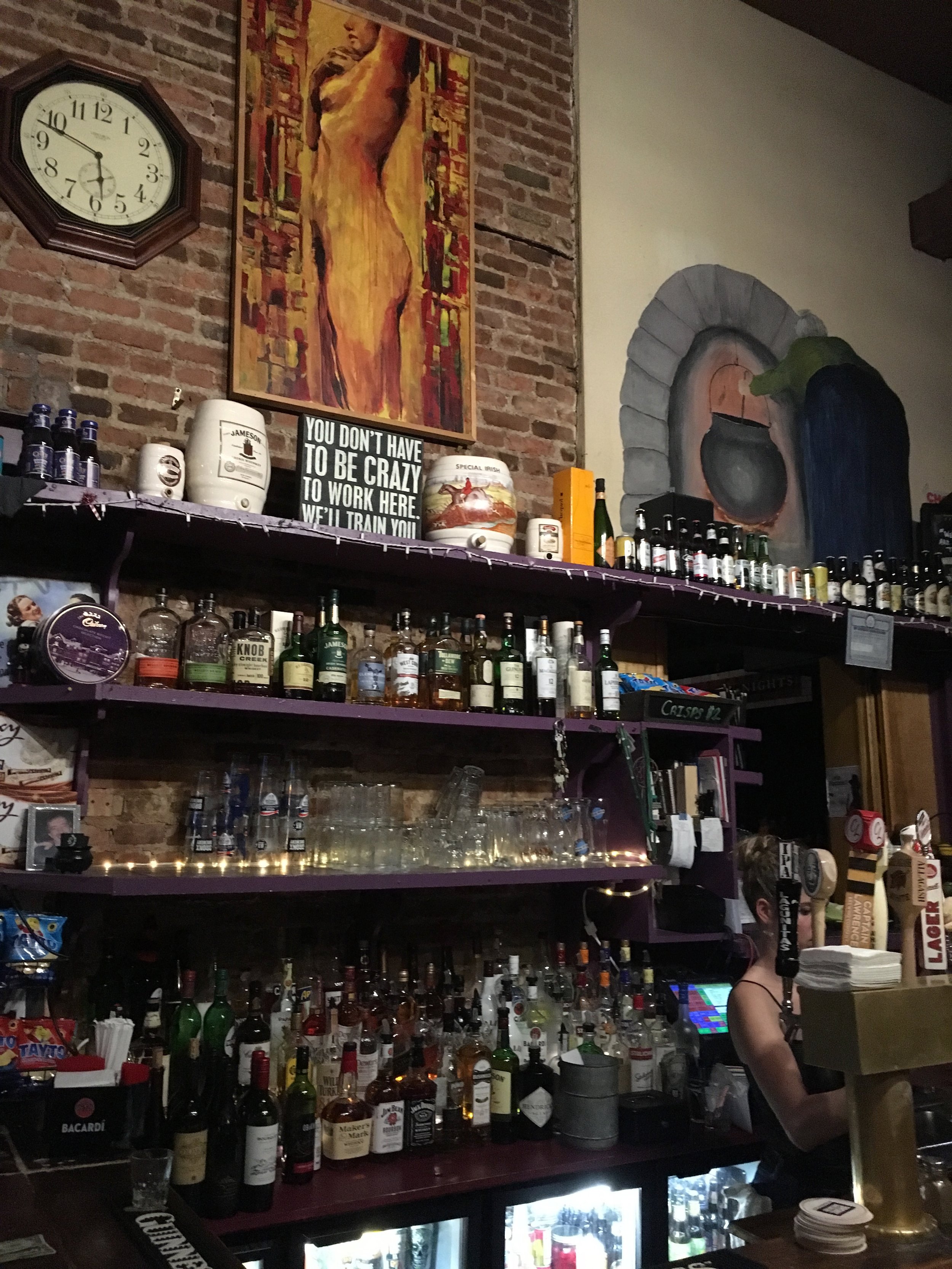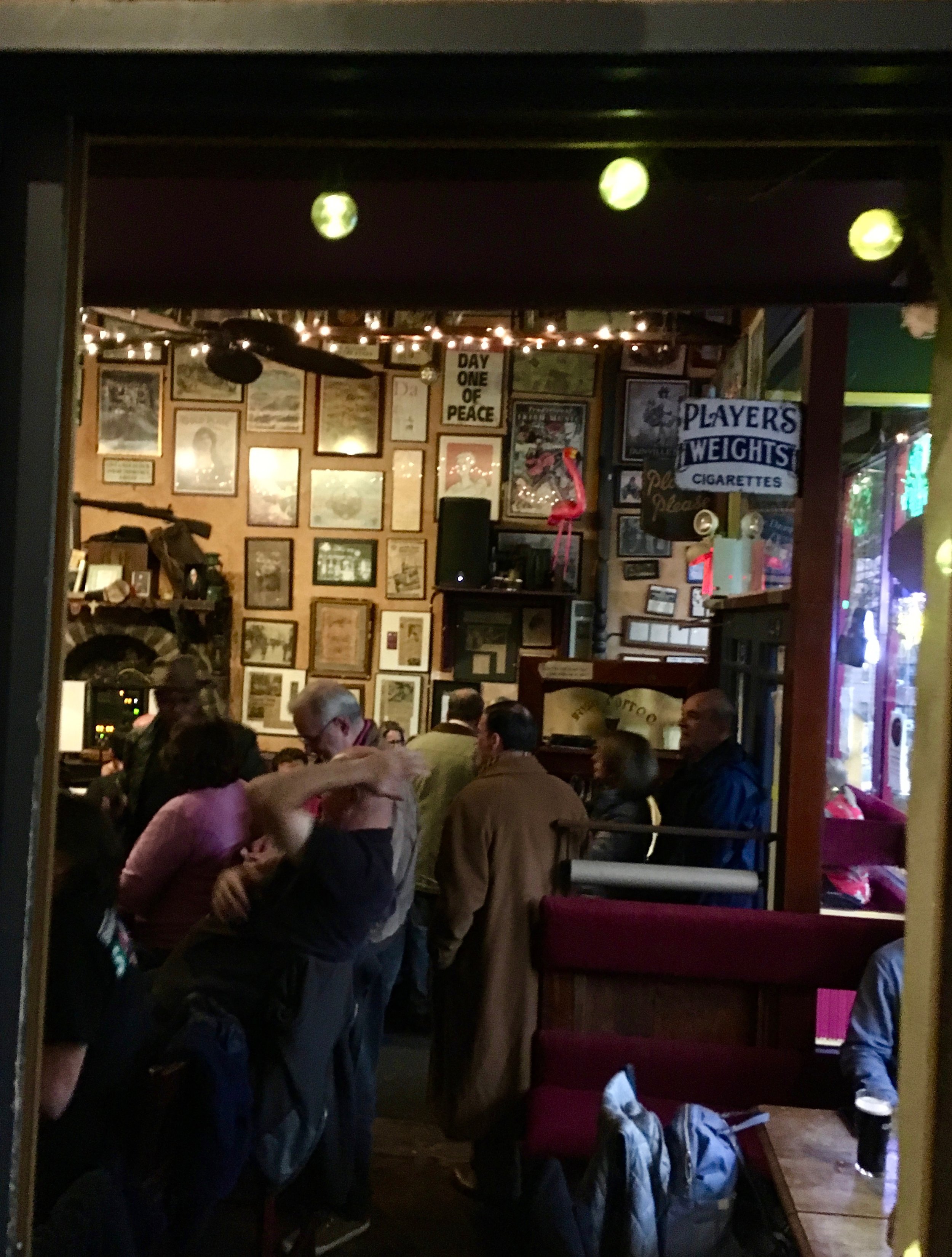Feeding “the poor mouth” with rich company, ale and song
When the Chef and I had our five-week sojourn in Norwich, UK, one thing we appreciated was the pub life at our local, The Alexandra Tavern. When he came back stateside, the Chef made a radical decision. He would no longer frequent bars on the basis of their selection of craft or cask beer but go to bars that closely approximated those of the British pubs we loved: gemütlichkeit, regulars, decent beer selection.
An Beal Bocht, an Irish pub in the Riverdale neighborhood, or more accurately Kingsbridge, of the Bronx epitomizes the kind of “third place,” the Chef seeks. An Beal Bocht is Gaelic for “The Poor Mouth,” and the name of a Flann O’Brien novel with biting humor considered the best Irish language novel of the 20th century. Yet, while named for a synonym for abject poverty, An Beal Bocht is rich—not just in food and drink offerings but in its community, its homegrown “Poor Mouth” theater company, and its renown as a fertile music and arts showcase.
But first, I’m taking you down the garden path…
We had come to An Beal Bocht on a gloomy fall Sunday after a walk in another under-heralded Bronx oasis, Wave Hill. These pristine gardens with splendid views of the Palisade cliffs across the Hudson are more accessible than many of my Manhattan or Brooklyn friends think. They are where I go to lift my spirits, always amazed I can feel so utterly outside of the city within the Bronx. Favorites: the small greenhouse with cacti on one end and a tropical rainforest at the other, the brilliant purple beautyberries growing outside the gift shop (porcelain berries pictured tho’), the gift shop and café—terrific amenities—the Chinese cork tree outside Wave Hill House, the art shows in Glyndor Gallery that always have something striking and finally, the Adirondack chairs strewn about, where I can sit, read, contemplate the beauty surrounding me and “reset” my head.
O.K., Back to the Bar…

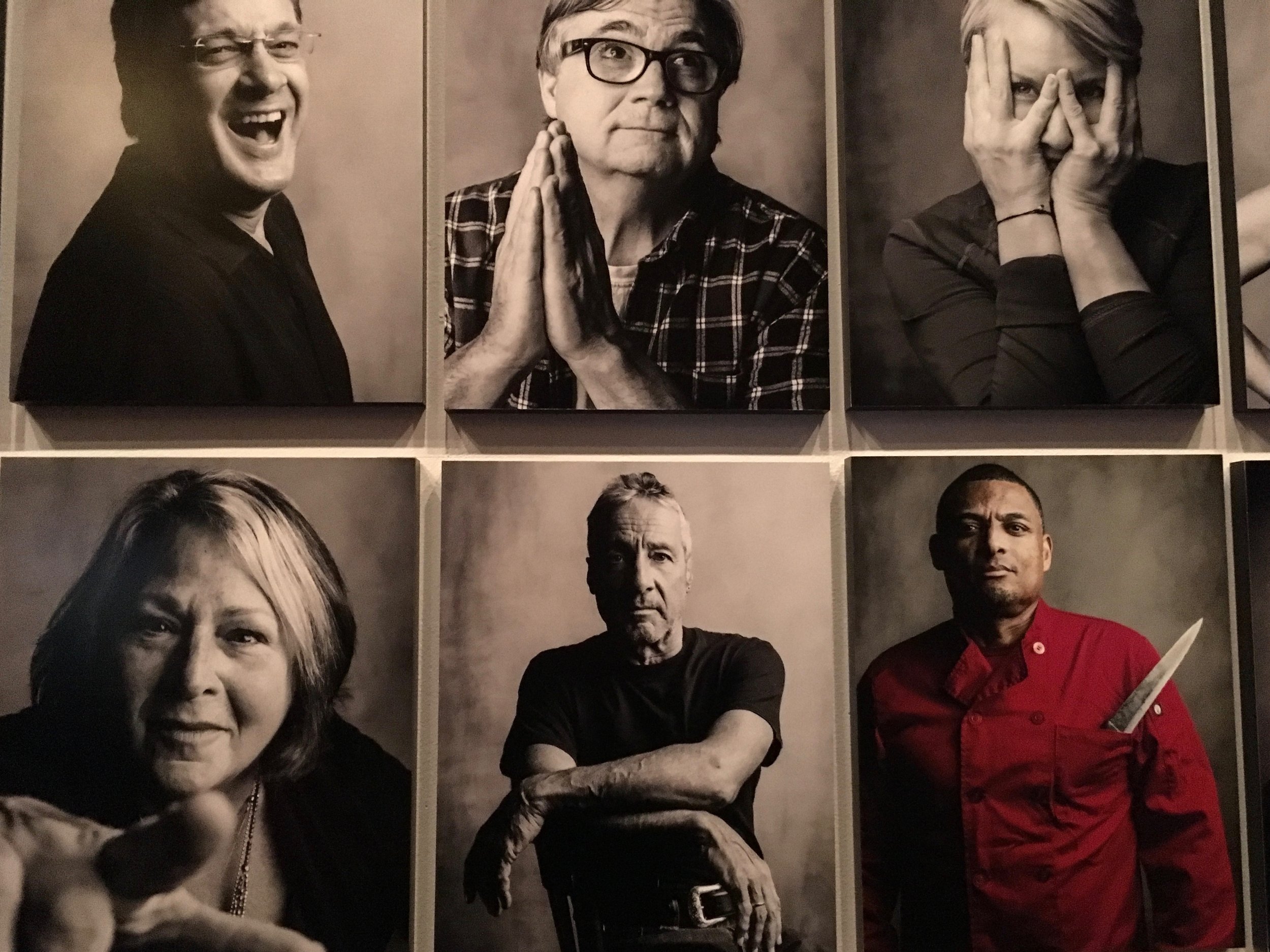
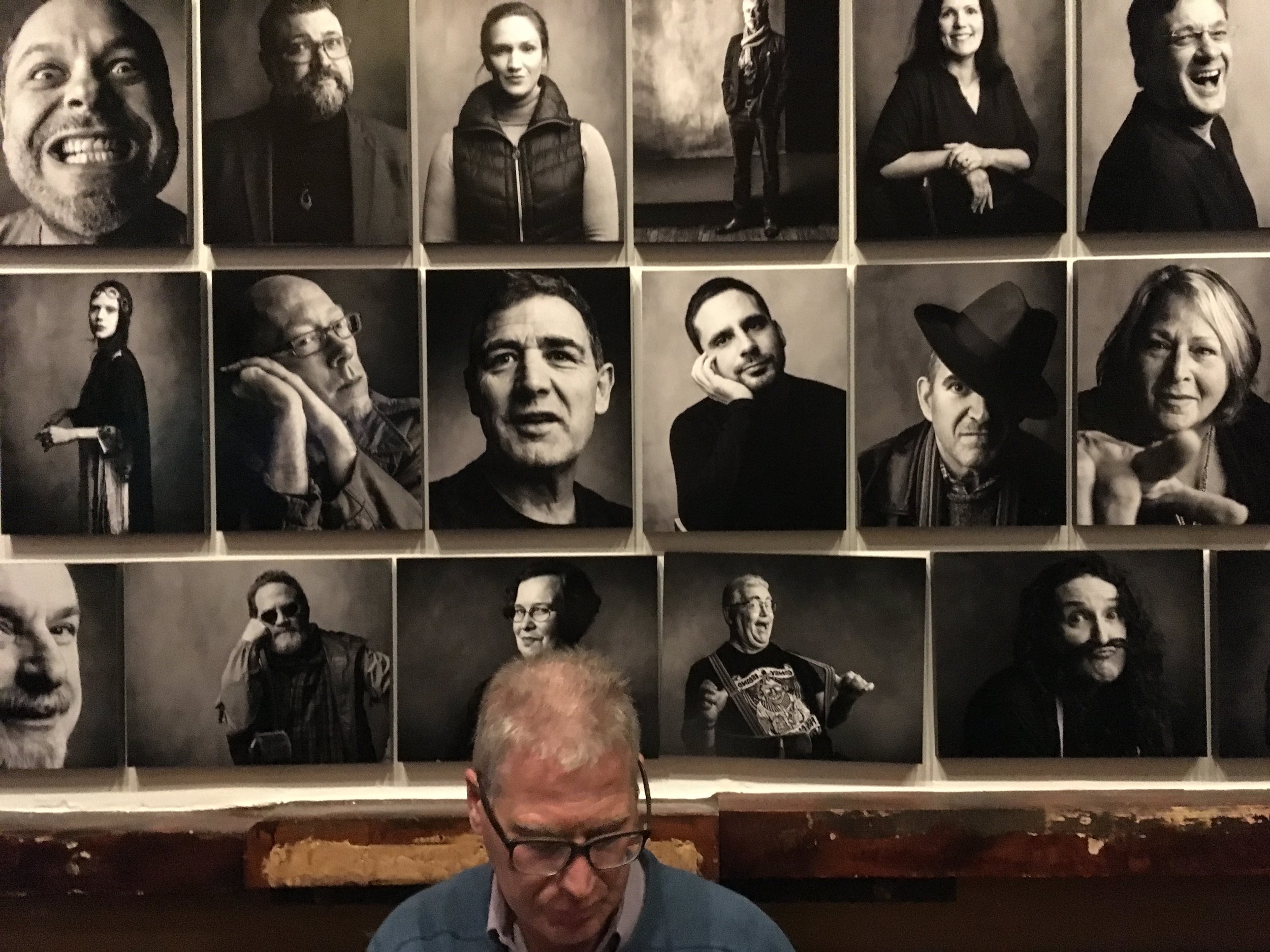
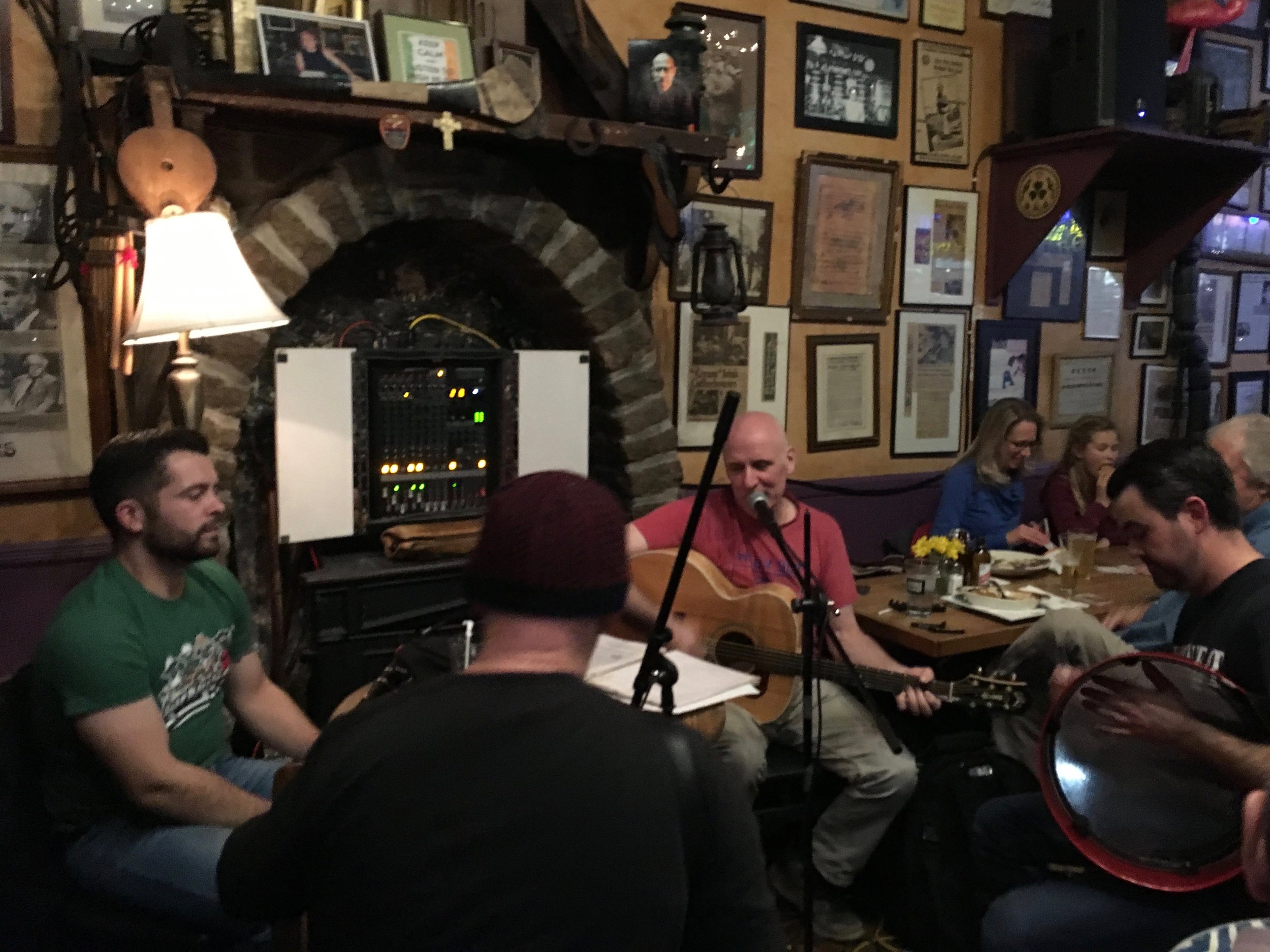
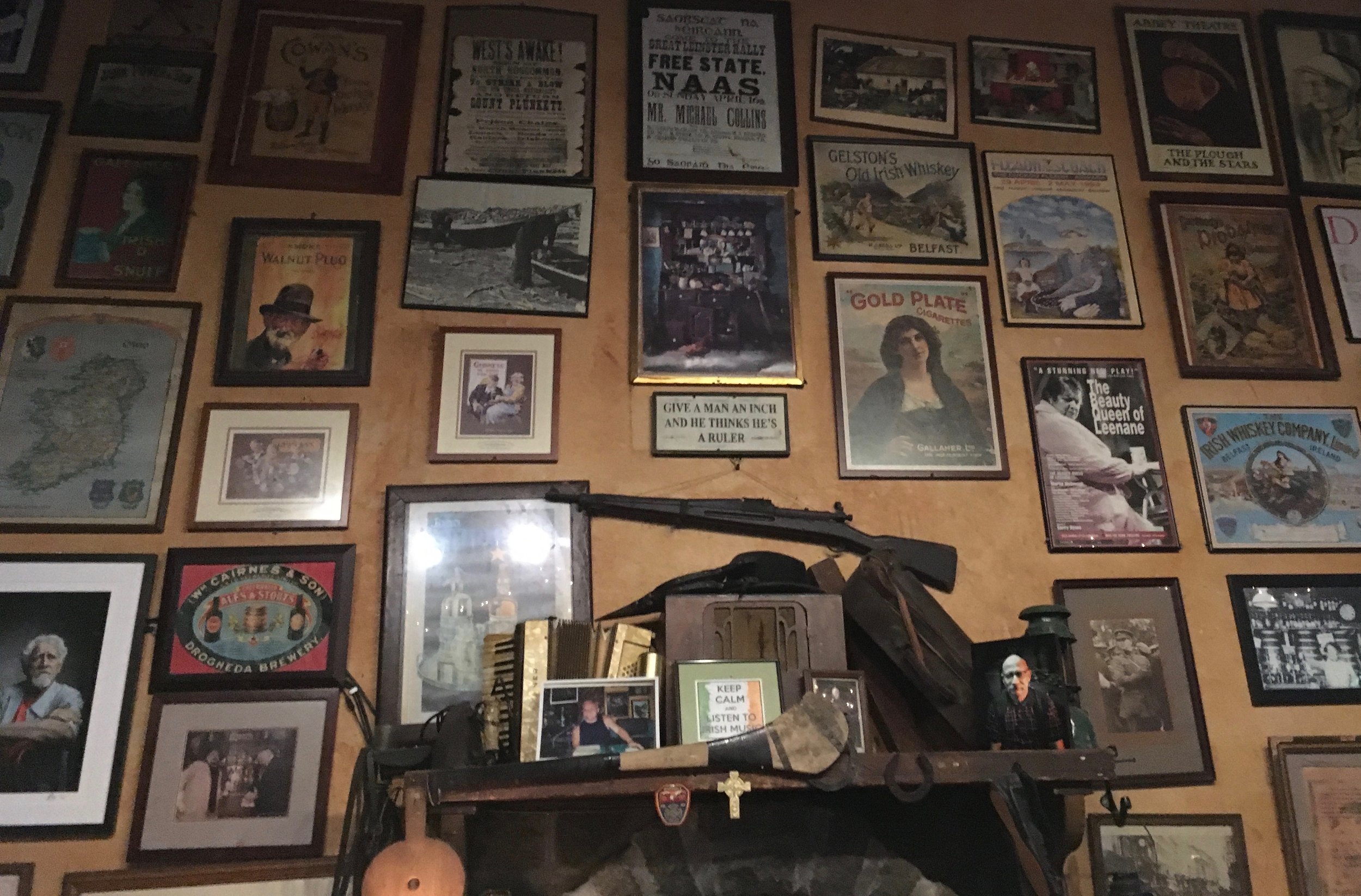
Wave Hill is about a mile walk from the 231st St. #1 subway stop, and An Beal Bocht was in our sites on the way back. The bar/café is right in the heart of Manhattan College, so there were students lining the picnic tables outside including one kitted out in full Scottish piping regalia—and I caught an exchange between the piper and another fellow, arranging for the piper to play at the fellow’s “Irish Music” lecture.
When we entered the packed pub, the scene took me right back to England, to the Alex and also to Eaton Park Café minus the dogs. Three men were playing Irish songs by the hearth. A long table was set for someone’s birthday, but only a sliver of cake remained and every burly man had a child on his knee and a pint in his hand, and the women were laughing and the children were screeching or playing hide-and-seek among the tables. The wall behind us was plastered with striking black and white portraits, which turned out to be a photo homage to An Beal Bocht Patrons and staff members. That in one hour I recognized so many of the patrons and staff in their portraits shows just what a neighbourhood hub this place is. New York Times photographer Robert Presutti, a neighborhood regular, had exhibited them in a show, Faces of An Beal Bocht, a few days prior.
The Chef ordered a pint of Guiness on draft, and I had a bottle of Long Island Black Duck Porter and then a half of Guiness—oh bless any pub that offers half pints to those of us who are overwhelmed by pints! The menu was voluminous, but we settled on a bar favorite: onion rings, and these came with chipotle mayo and a Thai chilli sauce ($6.00). Our barman was red haired, bearded and had a twinkle in his eye. The light, crisp fried onions were such a perfect umami-accompaniment to the thick, dark beer that we ordered another serving.
I’d brought my knitting and my book. The Chef had parts of the Sunday paper, but we were so caught up in the scene swirling around us. If we can’t have our own “local,”—and with the closing of The Abbey Pub near us and the skyrocketing rents we surely can’t—we are happy to warm our hands at someone else’s fire, outsiders that we are.
